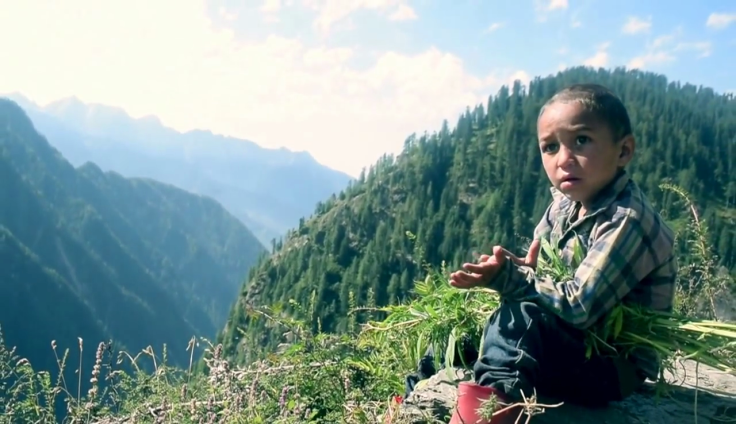Hindu deity bans tourists from Indian village famous for world's best hash Malana Cream
Jamlu, the deity of Himalayan village Malana, made the move to protect the local culture.

Malana, the Indian village famous for its premium quality hash, has ordered the closure of all guest houses and restaurants.
Malana's residents have reportedly decided to follow the diktats of their presiding deity, Jamlu, to protect local culture and tradition.
Nestled in the Himalayas in the north Indian state of Himachal Pradesh, Malana has for centuries followed the rules laid down by its local deity. According to the latest reports, the deity has now forbidden locals from renting out their properties to tourists.
"The deity did not want any of the villagers to rent out their property for running guest houses and restaurants. He has forbidden everyone from doing this, and those violating his orders will have to bear the brunt of his curse," Bhagi Ram, panchayat pradhan or head of village council told Hindustan Times newspaper..
The order was passed after the village's 'parliament' concluded that foreign tourists thronging their village were a threat to their culture.
Malana's parliament has an upper house called Jayeshthang and a lower house called Kanishthang. Villagers recently invoked Jamlu after the parliament met. In this case an oracle conveyed the deity's message.
Rajnish Gautam, the district's tourism officer, has confirmed the report. "I learnt that the deity has forbidden the villagers from running guest houses," he said.
Malana has about 4,700 residents and a dozen guesthouses. The village owes a major part of its tourist footfall, both international and domestic, to cannabis.
"It's unfortunate that cannabis trade has defamed our village. People of this village have their own culture and beliefs," Mahila Mandal pradhan, Ram Kali, told Hindustan Times newspaper.
Villagers had recently banned people from clicking photographs in the region to prevent tourists from portraying Malana as a hub of narco-tourism.
Malana and the Magic Valley
Malana, an ancient village in the Kullu Valley, is located at an altitude of 9,938 feet above sea level. The aromatic "Malana Cream" is a strain of cannabis with high oil content. Hashish produced in this region has earned legendary status among cannabis smokers around the world. A tola, or 11.66 grams, retails for $16 in Malana, $40 in Delhi, $70 in Goa and as much as $250 (£195.01) in Amsterdam.
Malana Cream has even won the Best Hashish title twice, in 1994 and 1996, at High Times magazine's Cannabis Cup.
In 2016, the local government estimated that 240 hectares (593 acres) of land in the region was used for cannabis cultivation. The region reportedly produced more than 12,000kg (26,455lb) of hashish. Authorities say the numbers might be higher, given that these plants are grown on the steep, inaccessible edges of high mountains.
Although the local government has tried to take the villagers away from hash trade, villagers say they are left with no other choice. The plant's cultivation or sale without a license and its general use is illegal, as per the 1985 narcotics act.
Possession of a kilogram (2.2 pounds) of hash also known as 'charas' is punishable by a minimum 10 years' imprisonment.
Alexander The Great's Army
Legend has it that the residents of Malana are direct descendents of Alexander the Great's soldiers and have pure Aryan genes.
During his campaign in India in 326 BC, Alexander was looking for someone to defeat in the hills of the Parvati valley. But the rough and rugged mountains forced his army to settle in a valley (today known as Malana). DNA research has not found any evidence that could support the theory linking the villagers to Greek soldiers.
© Copyright IBTimes 2024. All rights reserved.






